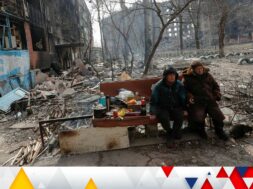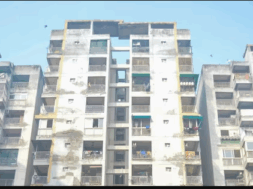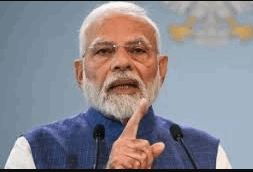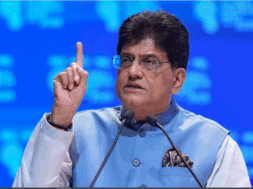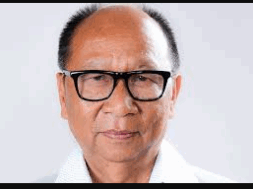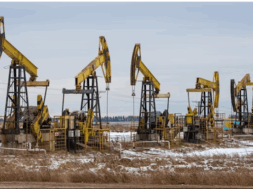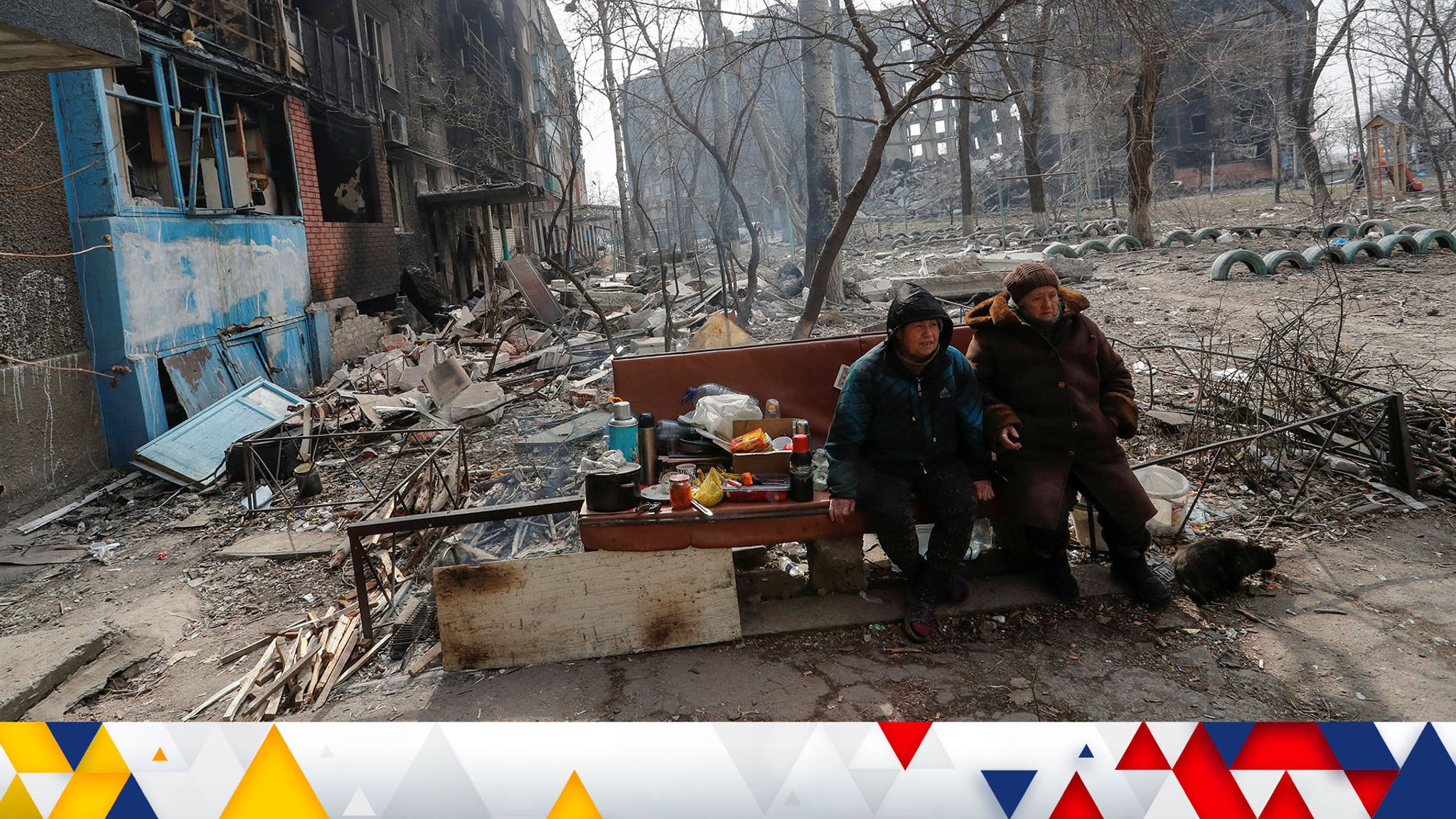
Ukraine asks for more Arms from West as Russia Shows Signs of Scaling Down its Goals
Manas Dasgupta
NEW DELHI, March 27: The Ukraine President Volodymyr Zelensky has urged the West to give Ukraine more tanks, planes and missiles to fend off Russian forces claiming that the Russian forces were targeting the country’s fuel and food depots even as the Russian military appeared to be trying to encircle Ukrainian forces fighting in the separatist regions in the eastern part of the country after scaling down its ambitions in the war-devastated country.
Britain’s Ministry of Defence claimed on Sunday that the Russian forces are advancing southward from the area around Kharkiv and north from Mariupol. Ukrainian Interior Ministry adviser Vadym Denysenko said on Sunday that Russia had started destroying Ukrainian fuel and food storage centres, meaning the government would have to disperse stocks of both in the near future.
Appearing to confirm that, the Russian defence ministry said its missiles had wrecked on Saturday a fuel deposit as well as a military repair plant near the western city of Lviv, just 60 km from the Polish border. Four rockets hit Lviv on Saturday, local officials said, urging residents to stay indoors. The back-to-back airstrikes shook the city which has become a haven for over 200,000 displaced due to the war. Lviv had been largely spared since the invasion began, although missiles struck an aircraft repair facility near the main airport a week ago.
A nuclear research facility in Kharkiv again has come under shelling by Russia, Ukraine’s nuclear watchdog said. The State Nuclear Regulatory Inspectorate said the neutron source experimental facility in the Kharkiv Institute of Physics and Technology came under fire on Saturday.
“Russia is trying to split Ukraine in two to create a Moscow-controlled region after failing to take over the whole country,” the head of Ukrainian military intelligence said. “Russia continued its “full-scale armed aggression”, while Ukrainian forces had repulsed seven attacks in the eastern regions of Donetsk and Luhansk, the General Staff of Ukraine’s Armed Forces said.
Four missiles hit Lviv on Saturday just 60 km from the Polish border, local officials said, in the most significant attack on the city in the month-old war. Russia struck military targets in Lviv with high-precision cruise missiles, the Russian defence ministry said. At least five people are wounded in two barrages of strikes that damage infrastructure including the fuel storage facility in Lviv. Russian forces also took control of a town where staff working at the Chernobyl nuclear site live and briefly detain the mayor, sparking protests, Ukrainian officials said.
Going all-out offensive, the U.S. President Joe Biden called his Russian counterpart Vladimir Putin a “butcher” who “cannot remain in power” after meeting top Ukrainian ministers for the first time since Russia’s invasion of Ukraine. Biden met Ukrainian ministers on Saturday, as Russia signalled it may scale down its war aims after failing to break the nation’s resistance in a month of fighting and deadly attacks on civilians.
The U.S. leader has been leading efforts among Western allies to press Vladimir Putin to end his invasion of Ukraine, branding the Russian president as a “war criminal” over the assaults on civilians. Putin had sent troops into Ukraine on February 24, vowing to destroy the country’s military and topple pro-Western President Volodymyr Zelensky but his army has made little progress on capturing key cities, and its attacks on civilians have become more deadly.
In a surprise statement, Sergei Rudskoi, a senior Russian general, suggested the time had come for a considerably reduced “main goal” of controlling Donbas, an eastern region already partly held by Russian proxies. The apparent scaling down of ambitions came as a Western official reported that a seventh Russian general, Lieutenant General Yakov Rezanstev, had died in Ukraine and that a colonel had been “deliberately” killed by his own demoralised men because of unexpected heavy losses of men and armaments in the war.
Mikhail Mizintsev, head of the Russian National Defence Control Centre, held a briefing on Russian military action in Ukraine, in Moscow on March 25. The Russian army updated its losses in Ukraine to 1,351 soldiers, while saying that it had evacuated more than 400,000 civilians and condemning Western supplies of weapons to Kyiv.
Complicating Moscow’s challenges, invasion troops were facing a counteroffensive in Kherson, the only major Ukrainian city under Russian control. Visiting Rzeszow, about 80 kilometres from Ukraine, Biden praised Ukraine’s “incredible” resistance, comparing the conflict to a bigger version of communist China’s 1989 crushing of protests in Tiananmen Square.
Biden told soldiers from the 82nd Airborne Division that the struggle in eastern Europe represents a historic “inflection point”. “Are democracies going to prevail… or are autocracies going to prevail? And that’s really what’s at stake,” Biden said.
The U.S. leader was briefed on the humanitarian situation, with more than 3.7 million refugees fleeing Ukraine, most of them into Poland. Earlier, he ended a trip to Brussels for meetings with Western allies by announcing new measures to help the European Union shed dependence on imported Russian energy. The plan is part of a sea change in the West, which for years has shrunk from direct confrontation with the Kremlin, but now seeks to make Putin a pariah.
“More than a month has passed since the invasion of Ukraine, since the start of this cruel and senseless war, which, like every war, is a defeat for everyone, for all of us,” Pope Francis, speaking to thousands of people in St. Peter’s Square for his Sunday blessing. Said.
Zelensky angrily warned Moscow that it was sowing a deep hatred for Russia among his people, as constant artillery barrages and aerial bombings are reducing cities to rubble, killing civilians and driving others into shelters, leaving them to scrounge for food and water to survive. “You are doing everything so that our people themselves leave the Russian language, because the Russian language will now be associated only with you, with your explosions and murders, your crimes,” Zelensky said in an impassioned video address late Saturday.
Ukraine and Russia have agreed two ‘humanitarian corridors’ to evacuate civilians from frontline areas on Sunday, including allowing people to leave by private car from the southern city of Mariupol, Deputy Prime Minister Iryna Vereshchuk said.
A separatist leader in eastern Ukraine said his region wants to hold a vote on joining Russia. Leonid Pasechnik, the head of the self-proclaimed Luhansk People’s Republic, said on Sunday that it could hold a referendum “in the nearest time” asking voters whether they support making the region part of Russia. Russia has supported the separatist rebels in Luhansk and the neighboring Donetsk regions since an insurgency erupted there in 2014 shortly after Moscow’s annexation of the Crimean Peninsula. Moscow recognized their independence on Feb. 21 and then cited their call for military assistance to launch the invasion of Ukraine on Feb. 24.
But Ukraine said Russia holding a referendum in occupied Ukrainian territory would have no legal basis and would face a strong response from the international community, deepening its global isolation. “All fake referendums in the temporarily occupied territories are null and void and will have no legal validity,” Ukraine’s foreign ministry spokesperson Oleg Nikolenko said in a statement. “Instead, Russia will facе an even stronger response from the international community, further deepening its global isolation,” he said.
The forces and the people in the Black Sea port of Odesa is bracing up to defend the port city from a feared Mariupol-style fate in the face of growing alarm that the strategic city might be next as Russia attempts to strip Ukraine of its coastline. The multi-cultural jewel, dear to Ukrainian hearts and even Russian ones, would be a hugely strategic win for Russia. It is the country’s largest port, crucial to grain and other exports, and headquarters for the Ukrainian navy.
Bombardment from the sea last weekend further raised worries that the city is in Russia’s sights. Residents say Putin would be insane to take Odesa with the brutal approach that has left other Ukrainian cities in ruins. Once a gilded powerhouse of the Russian empire, Odesa includes one of the finest opera houses in Europe and the famed Potemkin Steps between the city and the sea, featured in Soviet filmmaker Sergei Eisenstein’s 1925 silent film masterpiece “Battleship Potemkin.”
But after a month of gruelling war, people say they can’t predict anything anymore. “The only thing we’re really afraid of is that the other side has no principles whatsoever,” said Valerii Novak, a local businessman. He never considered himself a Ukrainian patriot, but when Russia invaded, something “just clicked” in him. He has refused to leave Odesa and joined thousands of people in basic training in how to use a gun.
Now he and other Odesa residents watch Russian warships move closer, in provocation. Western officials call the Russian ships a mix of surface combatants and the kinds used to put naval infantry ashore. The seizure of Odesa and the strip of land farther west also would allow Moscow to build a land corridor to the separatist Trans-Dniester region of neighboring Moldova that hosts a Russian military base.
